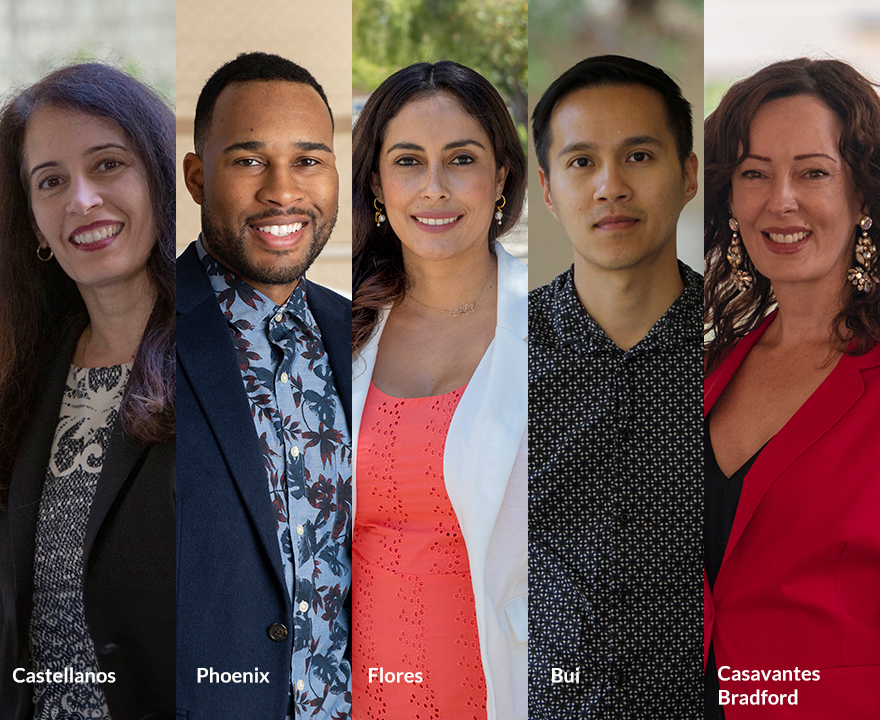
First-rate advice for first-year and first-generation Anteaters
Fall quarter officially kicked-off Thursday, Sept. 28 and campus is buzzing with excitement. Among the School of Social Sciences’ nearly 1,500 incoming first-year and transfer students, 44 percent identify as the first in their family to go to college. This momentous milestone marks an incredible accomplishment and important step on a journey that’s just begun – one with which a number of the school’s faculty can relate. Beyond the fun and first day jitters, they know first-hand that navigating the college experience can be a challenge – and they’re here to help. Below, five social scientists who were the first in their family to go to college offer some sage strategies for succeeding in the academy and beyond.
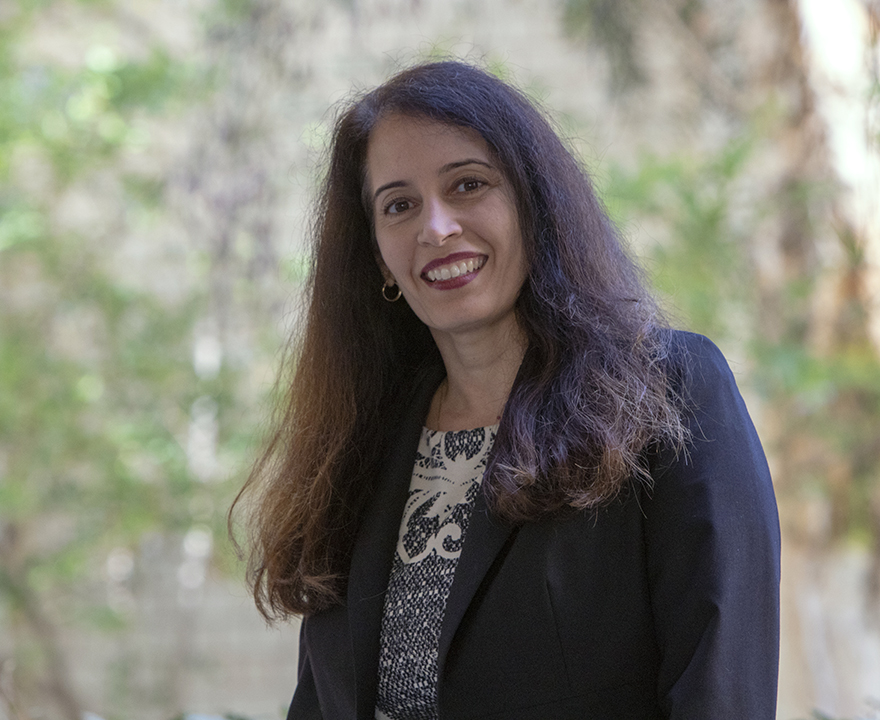 Find your academic family
Find your academic family
Jeanett Castellanos, Associate Dean of Undergraduate Studies and Professor of Teaching in Social Sciences- castellj@uci.edu | SBSG 5406, SSPA 5125 | 949-824-6298, 949-824-9010
- B.A., Psychology and Sociology, UCI | Ed.M., Counseling Psychology, Washington State University | Ph.D., Higher Education Administration, Washington State University
“First year/first generation students represent resilience, persistence with unique navigational skills. You are part of a group that has learned to succeed in an unfamiliar system that often did not reflect your voice, community, or narrative. Despite the isolation and chilly environment in the education system, you were resourceful, found ways to excel and thrived. You are one of more than 1000 students admitted to the social sciences for fall 2023 and you are now part of the Anteater family. Congratulations! You have an exciting journey ahead of you, and we are so lucky to have you! In this journey, maximize your time, embrace opportunities, pursue leadership programs, reach out to faculty, and be involved.
Mentors and peers will help you create your best memories as an Anteater. Mentors will support you academically and professionally. Peers will also mentor you and offer a unique space of personal and emotional support. Together, you will find ways to navigate as a collective and over time you will gain from creating or joining an academic family. An academic family is comprised of faculty, staff, graduate students, and peers who uplift you in your academic journey, who share resources, common interests, and help you succeed. Academic families help you reach your academic goals. Academic siblings are found in student organizations (e.g., the Black Psychological Student Association, the Latinx Student Psychological Association, Kababayan, and others), your courses, the dorms, and through different offices (e.g., SSARC, SOAR, CCC). Engage, attend events, embrace the college culture and groups that celebrate you and your different identities.
As you thrive in your courses and demonstrate your brilliance, remember - you don't need to do education alone. As a longtime mentor, I see students acclimate to college by seeking advice, mentors, and a support system that offers healthy cultural spaces. Find spaces that help you embrace your inner strengths and stay focused, programs that help you identify your personal passions, and activities that connect your degree to your community and a social cause. Be the Anteater you are meant to be!”
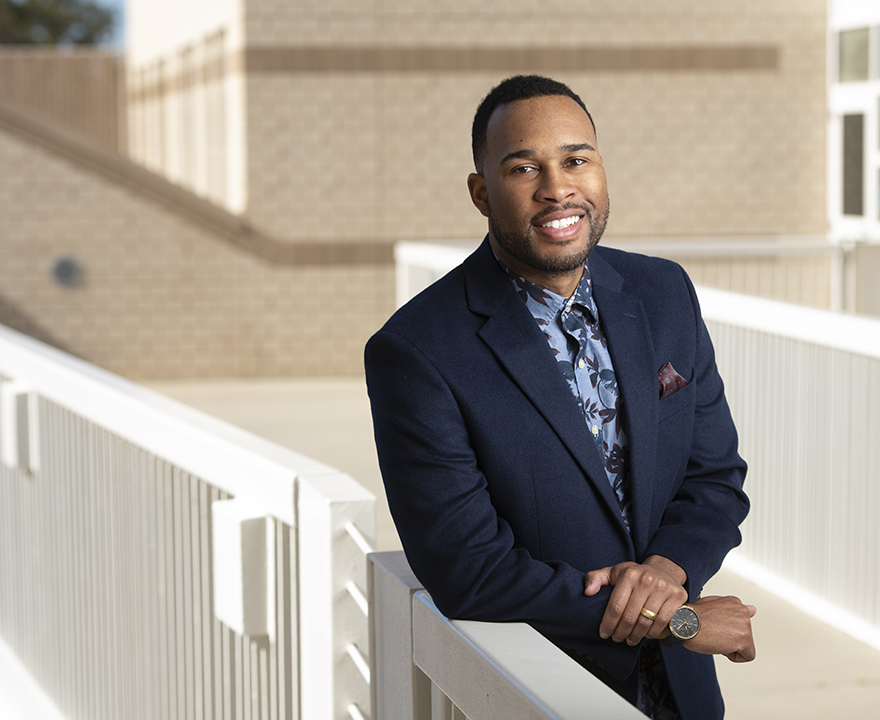 Ask, connect, attend
Ask, connect, attend
Davin Phoenix, Associate Professor of Political Science- dphoenix@uci.edu | SSPB 5201 | 949-824-5698
- B.A., Political Science, Christopher Newport University | Ph.D., Public Policy and Political Science, University of Michigan, Ann Arbor
“Congratulations, and welcome to UCI! Thinking back to my experiences as a first-gen college student, there are a few lessons I learned (some the hard way).
First, ask questions. Often. We first-gen folks tend to go it alone, a reflection of our resilience and a reminder that we can overcome a lot. But there’s a ton thrown at you in college, especially those first few weeks. And it makes it all but impossible to go it alone. It’s not just okay but vital to ask for clarity or guidance as you acclimate yourself within this new world. Professors, staff, even fellow students can clear up your confusion or help ensure you’re on the right track. It’s normal to feel lost at times, but don’t stay lost. Ask your questions and get helpful navigation.
Second, develop your longstanding interests, explore new interests, and connect with others who share them. Whether through formal clubs and organizations or informal gatherings, build your team of folks to explore hobbies with, hone your craft with, and try new stuff with. Your time in college goes by a lot quicker than you think. If you’re proactive about connecting with others, you can make friendships that last a lifetime—something you’ll appreciate long after you’ve graduated.
Finally, attend your professors’ office hours. It often doesn’t take much to spark an eye-opening conversation with them. And you can reap benefits from building relationships with professors that extend beyond the classroom, like receiving valuable post-college advice, getting plugged into research or other opportunities, and having some write a strong recommendation letter for you. In sum, ask, connect, attend! Cheers to the challenges and triumphs to come.”
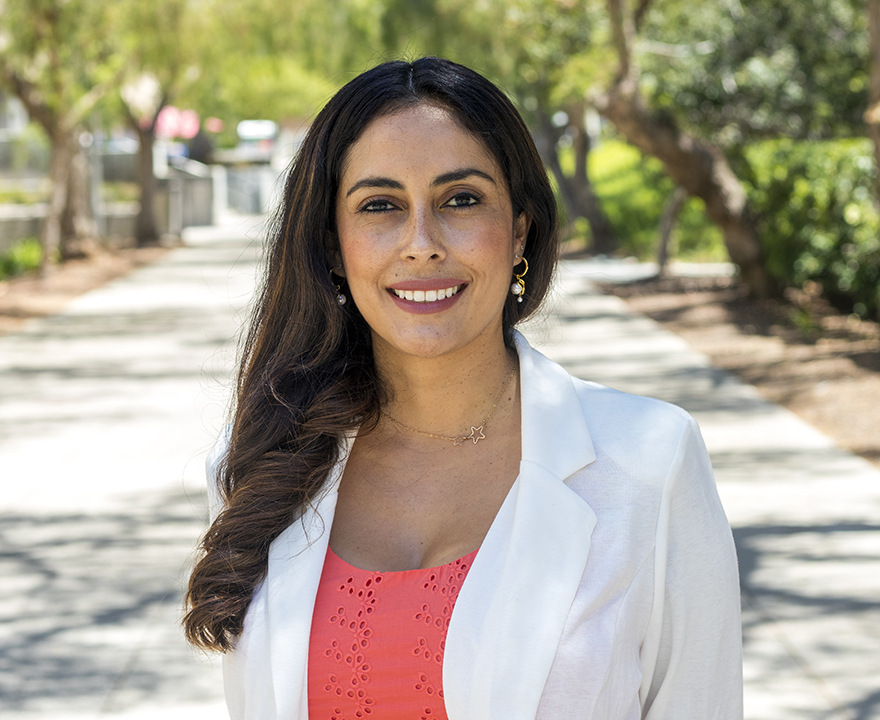 You can do this
You can do this
Glenda Flores, Associate Professor of Chicano/Latino Studies- gmflores@uci.edu | SST 371 | 949-824-4664
- B.A., Chicano/Latino Studies and Spanish Language and Culture (w/an Education Emphasis), UCI | Ph.D., Sociology, USC
“My story is similar to those of thousands of first-year and first-generation college students across the University of California system. I decided to become an Anteater because the campus was close to home, and my immigrant father had once worked on a construction project in Irvine. He noted that it was a ‘nice, safe’ community. I balanced familial obligations and academic duties while working as a waitress, a teacher’s aide, and a department store sales clerk throughout my years at UCI. Your own presence brings so much to the university campus. On my first day of class, I felt nervous, but I kept saying to myself ‘I can do this.’ And, you can too!
As you begin the academic year, here are some self-care tips:
- Live on campus – It helps with balancing family life and academics by alleviating familial obligations. Weekends can be for family and running errands, focus on campus life and studying during the week.
- Find community on campus – Look for activities, organizations, and resources.
- Take a class at the ARC (Anteater Recreation Center) – Try yoga, hip hop, or intramural team sports.
- Meditate and be in nature - Aldrich Park is an easy escape.
- Find your study spot – There are so many spaces on campus that help you focus. Try the Anteater Learning Pavilion or maybe designated study areas in your school’s major.”
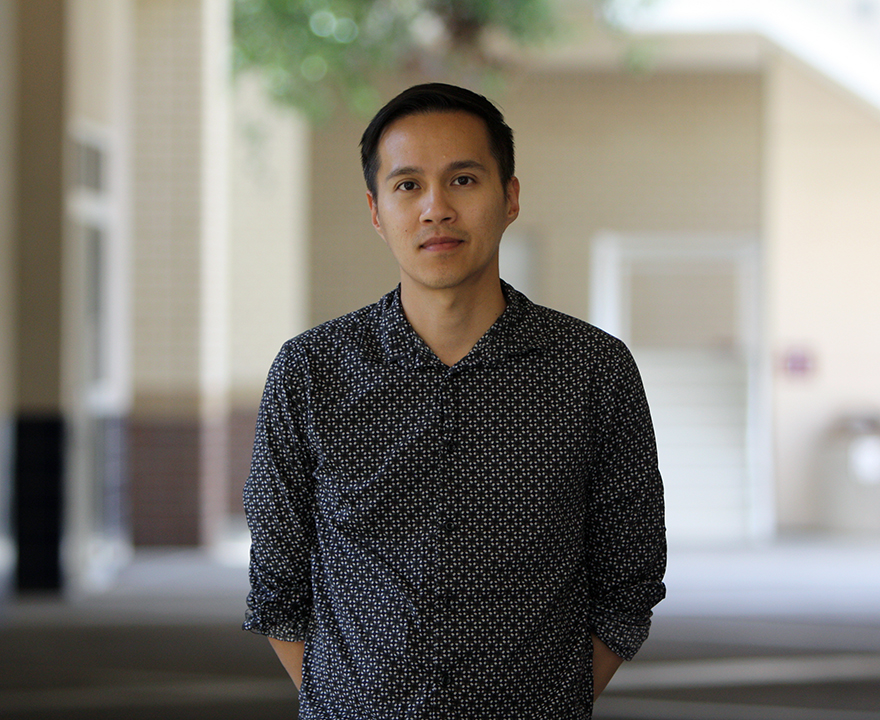 Seek out myriad, multifaceted mentors
Seek out myriad, multifaceted mentors
Long Bui, Associate Professor of Global & International Studies and Director of First-Gen
Faculty Initiatives- longb@uci.edu | SST 559
- B.A., Political Science and Asian American Studies, UCI | Ph.D., Ethnic Studies, UC San Diego
“When I landed at UC Irvine, I thought you had to find mentors that shared similar intellectual interests or a similar background. While that is true in many a case, I learned quickly that great mentorship comes in different shades. You need to connect with as many faculty as possible, even ones outside your major. One resource I never fully utilized were graduate students, who were often my teaching assistants, or TAs. I didn’t understand the nature of my relationship to them, or the real potential of it, not knowing they were just a step above me and could offer some immediate advice than the more established faculty. In the end, I made friendships with older librarians and staff who are friends with me today.
Most students do not know how to interact with more senior people and working professionals outside a tentative position, but I want all students to take a proactive approach. What if I told you your faculty mentor would be your colleague and you would be working alongside them? That happened to me, but if I didn’t make that dense human connection (and not a transactional one), creating social relationships in a deep meaningful and impactful way, I would’ve been lost.”
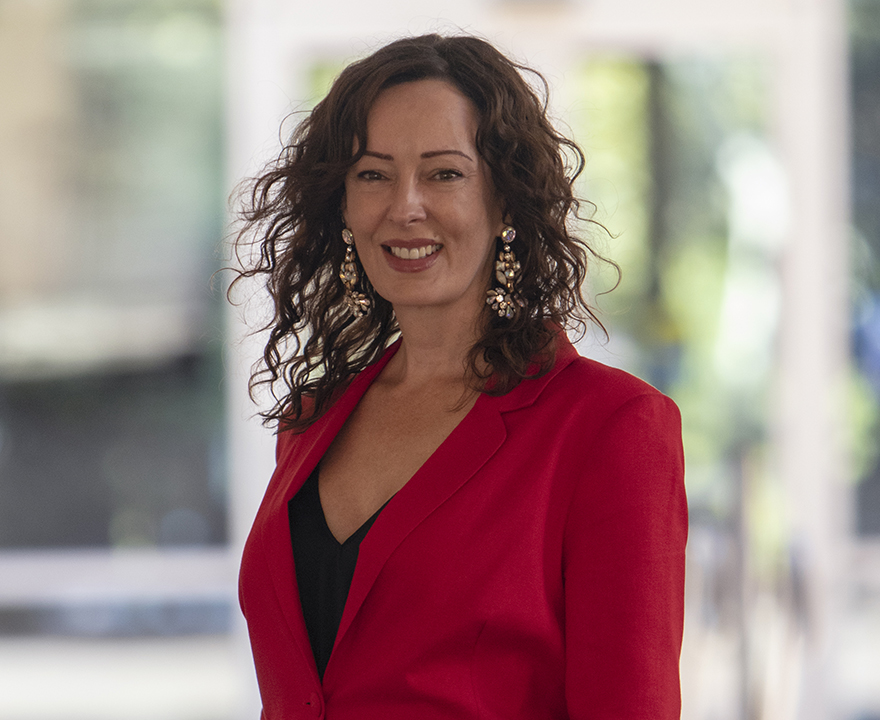 Get involved early
Get involved early
Anita Casavantes Bradford, Associate Dean of Faculty Development and Diversity and Professor of Chicano/Latino
Studies and History- acasavan@uci.edu | SST 367, SBSG 5409 | 949-824-4814
- B.A., History and Literature, Simon Fraser University, Vancouver | Ph.D., United States + Latina/o/Latin American History, UC San Diego
“My advice to first-gen students is to get involved early in a first-gen serving program or student group. Being in community with other first-generation students is a great way to find community, make friends, and learn about the unfamiliar new world of the university among others who are also new to higher education.
Being with other first-generation students will also give you a network to reach out to when you have questions or need support--and we all need support at different times in our academic journey! Don't be afraid to ask for help when you need it.”
-Heather Ashbach, UCI Social Sciences


